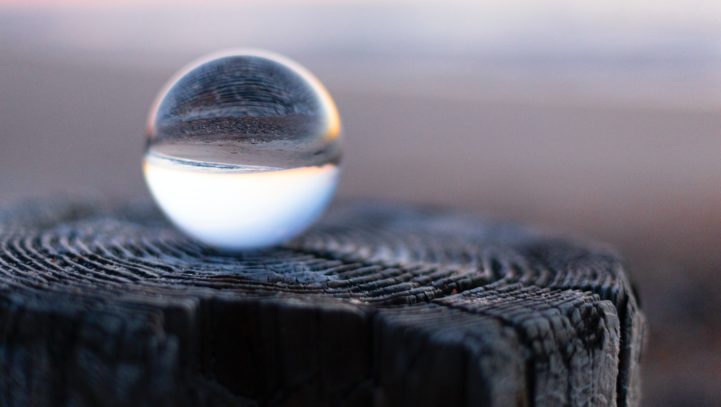Doing the Right Thing in 2021: Taking Accountability
Imagine a world where all people are honest and take meticulous care to do the right thing, owning up to their mistakes. These people acknowledge that they have accountability, and more importantly, submit themselves to measures imposed as a result of that accountability bestowed upon them.
Most of us, if not all of us, have been in situations where accepting accountability has been fundamental in contributing to a functioning society, be it in our professional or personal lives. We all agree upfront to accept accountability somewhere along the line.
Or do we not?
It’s become increasingly easy and common place for us to agree to certain standards, or even terms and conditions, with little regard to actually adhering to them. When you open a new bank account, do you read all the fine print? Do you fully embrace, and put measures in place, for your part of the deal? How many of us — when confronted by a situation where we have to own up to that accountability after an error or breech — stand up and acknowledge any part, or omission, we may have played in the situation?
People are quick to deny responsibility or accountability, instead laying the blame elsewhere. Every day, we read articles about people who have blamed others for something that has gone wrong. Occasionally, there is a story where someone steps down from a position, or owns up when they have failed to meet the standard they promised to adhere to. We might even read that these people are referred to as having integrity. This is truly a refreshing anomaly when we see it amongst a tsunami of denials voiced when people are held to account.
Integrity – is it a word you can associate with people you know? Is it a word you can associate with yourself? In the spirit of keeping it simple, the Wikipedia definition of integrity is “the practice of being honest and showing a consistent and uncompromising adherence to strong moral and ethical principles and values.”
Going back to imagining a world where all people are honest and take meticulous care to do the right thing, owning up if they have gotten something wrong. I decided to do a litmus test on what people’s thoughts were on this concept. One immediate answer was “that’s not possible,” another was “it would be great if that was true, but I don’t think that is true because humans are selfish and deceptive,” a third person said that “if everyone was the same, that might work, but we are not.”
Therein lies the crux of the issue, we are not all the same, we don’t have the same influences in our lives that shape what integrity is to each of us. Some of us have sadly drawn the short straw, having been born into difficult lives, or affected by circumstances to such a degree, that they have never known integrity, or worse, no longer believe in it and see it as a weakness of others that can be exploited.
I wonder, who do we think people of integrity are? Could it be the people who have the responsibility, and the ability, to influence others positively, leaders (government, business or religious), parents, or teachers? Shouldn’t it be all of us? One thing is clear though, there should be NO PLACE in our world for those who use their positions of power to negatively influence others, or erode a person’s integrity.
There is a fundamental thing that we all learn, whether formally taught or through experience, or both. This is, or should be, the difference between right and wrong. You could do things wrong on purpose, negligently, accidentally, or maliciously — but if you don’t hold yourself to account, or others don’t — that is where we go down the rabbit hole.
Do people in powerful positions, in the public and private sector, do the wrong things because they can?
Because we let them and don’t hold them to account?
Because there is little risk of repercussions for doing the wrong thing?
I have chosen not to write about the politically exposed or those working in the private sector who may exploit their power to enrich themselves. Reading the daily news gives a good estimate of the billions of dollars that are lost to corrupt practices. My key thoughts as we head toward the new year, which I believe for many is a time of reflecting and giving, is: What can I do about this?
Ask yourself this question: Have I abdicated my role as a responsible citizen when it comes to doing the right thing?
There are the obvious personal things that you can do to contribute when considering the basics —practising your own personal integrity, holding others to account when required (including family, friends and colleagues), and professionally doing your bit to contribute and to make a difference.
2020 has been a challenging year, many have exploited the gaps, loopholes and processes to enrich themselves using corrupt practices. My challenge to you is to think hard about how you can play a role to hold corrupt people to account? Will you speak up, tighten controls to detect and prevent corruption, withhold your support for corrupt companies / organisations / governments, or take firm action when any corruption is identified?
Corruption erodes our belief in doing the right thing, it erodes democratic processes, affects the economy of countries, steals resources, and enriches those that least deserve to benefit from it. We can no longer be neutral and on the side lines, and the time has come to take up the challenge.
Are you ready?
Let’s make 2021 a year of doing the right thing, by holding ourselves and others accountable.
About the Author: Ursula M’Crystal is an Anti-Money Laundering specialist with expertise in both the public and private sector.

